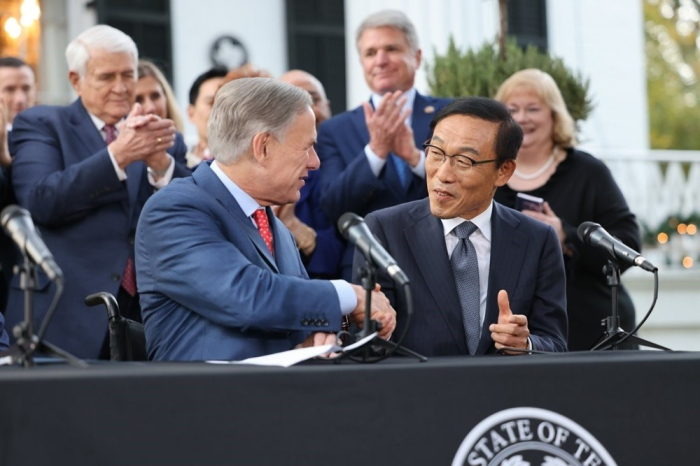
WASHINGTON – The US finalized a $4.7 billion government subsidy for Samsung Electronics Co.’s planned chip facilities in Texas about a month before President-elect Donald Trump who criticized the outgoing Biden administration’s program to support the semiconductor industry, takes office.
The US Department of Commerce said on Friday that it awarded the incentive to the world’s top memory chipmaker through direct funding under the CHIPS Incentives Program’s Funding Opportunity for Commercial Fabrication facilities.
The subsidy is smaller than a preliminarily agreed $6.4 billion as Samsung reduced the investment in building factories in Taylor to $37 billion from the earlier $44 billion.
“With today’s award, the United States will be the only country that has manufacturing fabs from all five leading-edge semiconductor companies. The manufacture of leading-edge semiconductors is a critical part of the supply chain for advanced AI and other leading technologies,” said US National Economic Advisor Lael Brainard.
“Today’s award unleashes nearly $37 billion in manufacturing investments from Samsung, which is the only semiconductor company that is a leader in both advanced memory and advanced logic chips.”
The Biden administration has already decided to award other chipmakers such as Intel Corp. up to $7.9 billion, Taiwan Semiconductor Manufacturing Co. (TSMC) up to $6.6 billion and Micron Technology Inc. up to $6.2 billion under the CHIPS and Science Act – a nearly $53 billion program to encourage companies to build new semiconductor plants in the US.
SK Hynix Inc., the world’s No. 1 high bandwidth memory (HBM) maker, secured a total incentive of $958 million, including $458 million in direct funding and $500 million in loans.
TO MEET EVOLVING NEEDS OF AI-DRIVEN ERA
Samsung decided to increase its investment in Texas from the initial $17 billion it pledged in 2021 to build an advanced semiconductor factory and a packaging facility, in addition to the originally planned foundry plant.

“Our agreement with the US government today under the CHIPS and Science Act represents another milestone as we continue to invest and build a state-of-the-art semiconductor ecosystem in the US,” said Jun Young-hyun, vice chairman and head of the semiconductor business of the South Korean tech giant.
“We look forward to further collaboration with our American partners to meet the evolving needs of the upcoming AI-driven era.”
The Commerce Department said Samsung is taking steps to strengthen US economic and national security and increase the resilience of both the domestic and global semiconductor supply chains.
The department also said the CHIPS investment would support the creation of approximately 12,000 construction jobs and more than 3,500 manufacturing jobs within the next five years.
“This is an extraordinary achievement, which will ensure we have a steady, domestic supply of the most advanced semiconductors that are essential to AI and national security, while also creating tens of thousands of good-paying jobs and transforming communities across the country,” said U.S. Secretary of Commerce Gina Raimondo.
UNCERTAIN FUTURE
The future of the CHIPS and Science Act, which received bipartisan support in Congress, became uncertain, given Trump blasted the legislation as being “so bad.”
“You didn’t have to put up 10 cents,” said Trump on a recent podcast. “You tariff it so high that they will come and build their chip companies for nothing.”

Vivek Ramaswamy, who was appointed as the co-leader of the US Department of Government Efficiency along with Elon Musk, criticized the Biden administration’s push to get $50 billion in chipmaking subsidies signed and awarded before President-elect Donald Trump takes power in January.
“This is highly inappropriate: they’re accelerating spending ahead of the transition of power,” Ramaswamy said, linking to a POLITICO interview with Commerce Secretary Raimondo where she discussed her remaining work to implement the CHIPS and Science Act.
By Sang-Eun Lee
selee@hankyung.com
Jongwoo Cheon edited this article.















